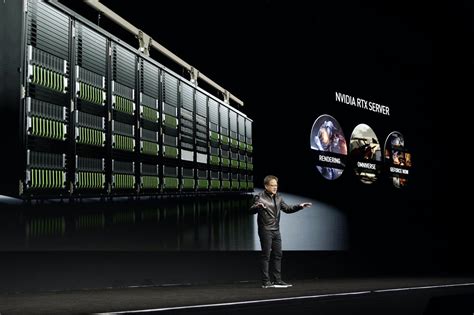NVIDIA has been a critical player in the tech industry for decades, primarily known for its high-performance graphics cards. However, recent advancements in artificial intelligence (AI) and machine learning have catapulted the company to new heights, threatening to surpass Apple’s market cap. The rise of AI has shone a bright spotlight on NVIDIA, with its hardware being integral in the processing of AI workloads. Despite its booming market value, a growing number of investors and commentators are questioning whether this ascendancy is sustainable in the long run or if it’s another bubble waiting to burst.
A significant concern among market-watchers is the volatility of trends within the tech industry.
Consider the opinions shared by various commentators: one poster speculated that if AI doesn’t maintain its current hype, we might find ourselves looking at other trends to uphold the momentum—such as gaming or even the resurgence of cryptocurrency. Another voice suggested that robotics might be the next big thing, pointing to the potential of humanoid robots and advancements in hardware that could lend an air of credibility to their rise. The rapid pace at which technology evolves makes predicting long-term success exceptionally tricky; from the highs of the dot-com bubble to the recent ebbs and flows in the cryptocurrency realm, history provides ample cautionary tales.
An interesting parallel can be drawn between the potential AI bubble and the surge Tesla saw when it became worth more than Ford and GM combined. Tesla has seen a considerable dip from its peak, underscoring how quickly market sentiments can shift. Similarly, NVIDIA’s current leadership in AI hardware does not guarantee it will have an unshakeable hold on the future. Robust software ecosystems like CUDA have provided NVIDIA a competitive moat, but it faces rivals like AMD and Intel who are ramping up their own AI and machine learning capabilities. A lot hinges on whether they can create viable alternatives to NVIDIA’s offerings.
Several commenters debated the durability of NVIDIA’s market position, pointing out that while the company currently has the best hardware, the landscape is evolving. For instance, there are already developments in custom AI chips by other tech giants such as Google and Meta, who are heavily investing in building their silicon to lessen their dependence on NVIDIA. The ability of these companies to scale their in-house solutions successfully could dramatically shift market dynamics. On the flip side, there is a noted absence of any immediate and potent competition to NVIDIA’s CUDA platform, lending the company some security in the short to medium term.
The economic implications of a potential AI bubble bursting extend beyond NVIDIA. If the hype around AI technologies subsides without delivering substantial economic benefits, it could impact investments across the tech industry. However, the ongoing surge in demand suggests a foundational confidence that AI’s utility will not merely be a transient trend. CEOs and executives across various tech sectors are increasingly unwilling to take the risk of sidelining AI developments. This sentiment is akin to the rush to invest in internet capabilities during the late ’90s, which enabled future infrastructure even after the dot-com crash.
In the grander scheme of things, the sustainability of NVIDIA’s ascent will likely come down to its continued innovation and adaptability in a rapidly evolving market. As noted by commentators, there might be a shift away from current AI models toward more specialized, purpose-built machinery, indicating a market ready to embrace new solutions rather than relying solely on general-purpose silicon. As NVIDIA continues its upward trajectory, it must balance its AI ambitions with realistic market expectations and remain agile to the impending technological disruptions that could arise.
In conclusion, while NVIDIA encapsulates the optimism surrounding AI and next-gen technologies, it also embodies the risks inherent in a fast-paced industry. Investors and tech enthusiasts alike should closely monitor the company’s trajectory, mindful that market fortunes can be as fleeting as they are spectacular. Whether NVIDIA will maintain its momentum and outstrip Apple in market value remains an unfolding drama, rich with both promise and peril.


Leave a Reply